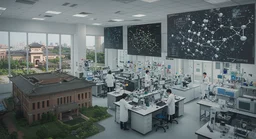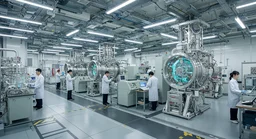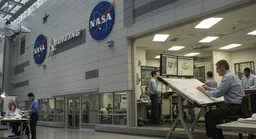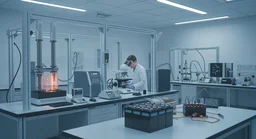Taiwan Approves ACRO Biomedical’s Groundbreaking Collagen Matrix for Corneal Transplants
221 views
A Visionary Leap: Taiwan's Breakthrough in Regenerative Medicine for Corneal Transplants
In a significant milestone for medical science, Taiwan's Ministry of Health and Welfare has granted regulatory approval to ACRO Biomedical's ABCcolla® Collagen Ophthalmic Matrix, a pioneering innovation in regenerative medicine. This biocompatible and biodegradable substitute for human corneas, developed from porcine tissue, is poised to transform the landscape of corneal transplants, offering a lifeline to millions suffering from vision impairment due to trauma, infections, or corneal melting.
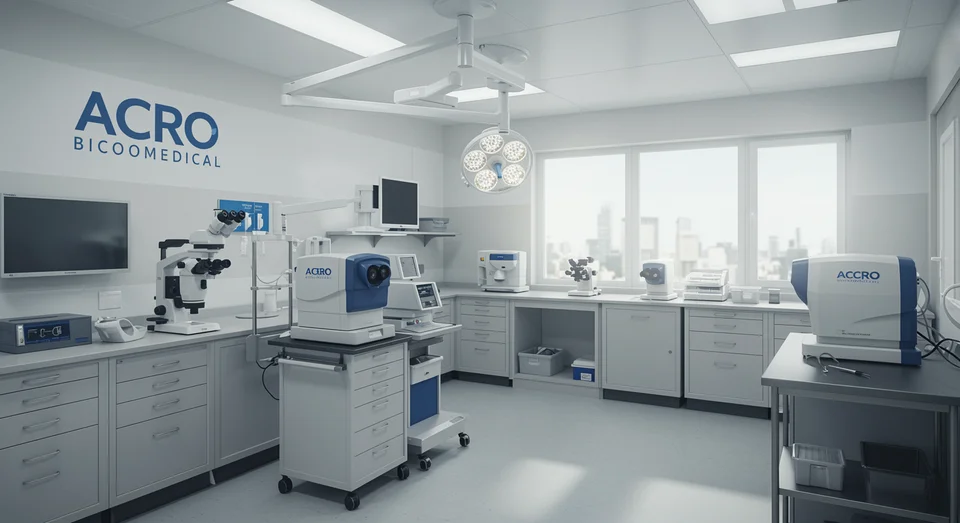
The ingenuity of ABCcolla® lies in its application of supercritical carbon dioxide decellularization technology, a process that meticulously removes cellular components while preserving the structural integrity of the tissue. This ensures the matrix is free of antigens that could trigger immune rejection, a common complication in traditional transplants. By harnessing this technology, ACRO Biomedical has created the world's first porcine-derived corneal substitute, a feat that has earned patents in 15 countries and garnered accolades in the medical community.
The urgency of such innovation cannot be overstated. Globally, the demand for corneal transplants far outstrips supply, leaving countless patients in a precarious wait for donors. The World Health Organization estimates that corneal blindness affects over 10 million people worldwide, yet only a fraction of them have access to transplantable tissue. ABCcolla® offers a promising alternative, not only alleviating the dependency on human donors but also expanding the possibilities for equitable access to vision-restoring procedures.
What sets ABCcolla® apart is its versatility in treating a range of corneal conditions. Whether the damage stems from physical trauma, bacterial or viral infections, or degenerative processes like corneal melting, this innovative matrix has demonstrated efficacy in restoring the eye's structural and functional integrity. Such advancements signal a paradigm shift in ophthalmology, where bioengineered solutions are increasingly bridging the gap between scarcity and need.
The approval in Taiwan marks a pivotal step toward commercialization, as ACRO Biomedical gears up to bring this groundbreaking product to the global market. The implications are profound: millions of patients in underserved regions could gain access to life-changing procedures, and healthcare systems could reduce their reliance on the unpredictable supply of donated corneas. Moreover, the biodegradable nature of the matrix aligns with the growing emphasis on sustainability in medical innovation, adding another layer of significance to this development.
While the scientific triumph of ABCcolla® is evident, its journey into widespread adoption will require navigating logistical, regulatory, and financial hurdles. Ensuring affordability and accessibility will be key to fulfilling its promise as a global solution to corneal blindness. Additionally, ongoing research and post-market surveillance will be essential to further validate its long-term safety and efficacy.
ACRO Biomedical's achievement is a testament to the transformative power of interdisciplinary collaboration, blending cutting-edge technology with medical expertise to address one of the most pressing challenges in vision health. As commercialization efforts unfold, the ripple effects of this innovation are likely to extend beyond ophthalmology, inspiring new applications of decellularization technology in other fields of regenerative medicine.
In a world where vision is often taken for granted, the approval of ABCcolla® serves as a poignant reminder of the strides being made to restore sight to those who have lost it. It is a beacon of hope, illuminating the path toward a future where medical science not only cures but empowers, giving millions the chance to see the world anew.



